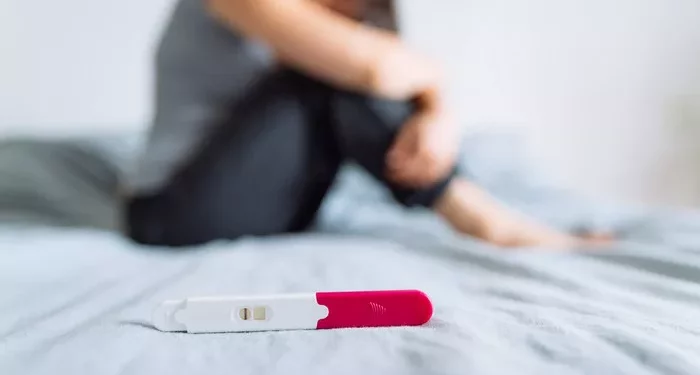Infertility is a complex medical condition characterized by the inability to conceive after a year of regular, unprotected intercourse. Menstruation, on the other hand, refers to the monthly shedding of the uterine lining, typically accompanied by bleeding. While these two phenomena may seem distinct, they are intricately connected through the process of ovulation. This article explores the relationship between periods and infertility, shedding light on the complexities of infertility and its various causes.
Having Periods and Infertility
While it may seem contradictory, it is indeed possible for women with regular periods to struggle with infertility. Regular menstrual cycles are often seen as an indication of ovulation, the release of an egg from the ovary, which is essential for conception. However, the presence of periods does not guarantee successful ovulation or the production of a healthy egg.
See also: Rates and Causes of Infertility in Women
Explore reasons for infertility despite periods:
Blocked Fallopian Tubes:
The fallopian tubes serve as the pathway for eggs to travel from the ovaries to the uterus. If these tubes are blocked or damaged, it can prevent sperm from reaching the egg or hinder the fertilized egg’s journey to the uterus for implantation. Causes of blocked fallopian tubes include pelvic inflammatory disease (PID), endometriosis, previous pelvic surgeries, or adhesions from abdominal infections.
Endometriosis:
Endometriosis is a condition where tissue similar to the lining of the uterus grows outside the uterus, commonly on the ovaries, fallopian tubes, or pelvic lining. This tissue responds to hormonal changes during the menstrual cycle, leading to inflammation, scarring, and adhesions. These abnormalities can interfere with ovulation, disrupt the function of the fallopian tubes, or impair the implantation process, resulting in infertility.
Uterine Fibroids:
Fibroids are non-cancerous growths that develop in or around the uterus. While many women with fibroids can conceive and carry a pregnancy to term, fibroids located within the uterine cavity or those significantly distorting the uterine shape can affect fertility. Fibroids can disrupt the implantation process or cause recurrent miscarriages. Treatment options for fibroids may include medication to control symptoms, surgical removal (myomectomy), or minimally invasive procedures such as uterine artery embolization.
Hormonal Imbalances:
Hormonal imbalances can disrupt the delicate interplay of hormones necessary for ovulation, fertilization, and implantation. Conditions such as polycystic ovary syndrome (PCOS) are characterized by hormonal disturbances, insulin resistance, and ovarian cysts, leading to irregular ovulation or anovulation (lack of ovulation). Other hormonal disorders, such as thyroid dysfunction or hyperprolactinemia, can also impact fertility by altering the menstrual cycle or disrupting ovulation.
Sperm Health Issues:
Male factor infertility contributes to nearly half of all infertility cases. Factors such as low sperm count, poor sperm motility (ability to swim), abnormal sperm morphology (shape), or sperm DNA fragmentation can impair fertilization and reduce the likelihood of conception. Lifestyle factors such as smoking, excessive alcohol consumption, obesity, or exposure to environmental toxins can negatively impact sperm health. Treatment options for male factor infertility may include lifestyle modifications, medication, or assisted reproductive techniques such as intrauterine insemination (IUI) or in vitro fertilization (IVF) with intracytoplasmic sperm injection (ICSI).
Age-Related Decline in Egg Quality:
As women age, the quantity and quality of their eggs decline, making conception more challenging. This decline in ovarian reserve and egg quality significantly reduces the likelihood of successful fertilization and implantation, even if ovulation is occurring regularly. Advanced maternal age is associated with an increased risk of chromosomal abnormalities in embryos, miscarriage, and infertility. Assisted reproductive technologies such as IVF with preimplantation genetic testing (PGT) may offer solutions for older women experiencing infertility due to age-related factors.
Chronic Health Conditions:
Chronic illnesses such as diabetes, autoimmune diseases, or thyroid disorders can impact fertility by disrupting hormonal balance, interfering with ovulation, or compromising reproductive organ function. Managing underlying health conditions through medication, lifestyle modifications, or other interventions can help improve fertility outcomes.
See also: PCOS and Infertility Statistics
Additional Information
It is essential for women experiencing irregular periods, heavy bleeding, or pelvic pain to seek medical attention promptly. These symptoms may indicate underlying reproductive health issues that require evaluation and treatment by a healthcare professional. Delaying diagnosis and treatment can further exacerbate fertility problems.
For those struggling with infertility, there are various resources available to provide support and guidance. Fertility clinics, reproductive endocrinologists, and support groups can offer valuable assistance in navigating the journey towards conception.
Conclusion
In conclusion, while regular periods are generally considered a positive sign of reproductive health, they do not guarantee fertility. Infertility is a multifaceted condition with numerous potential causes, many of which can exist alongside regular menstrual cycles. Consulting a doctor is essential for individuals experiencing difficulty conceiving, as it can help diagnose the underlying cause of infertility and explore appropriate treatment options. By seeking timely medical intervention, couples can increase their chances of overcoming infertility and realizing their dreams of starting a family.
Related Topics:
When Is the Right Time to Conceive After the Period?
Genetic Disorders That Cause Female Infertility: A Quick Guide
The 3 Root Causes of Infertility in Females: A Comprehensive Guide



























